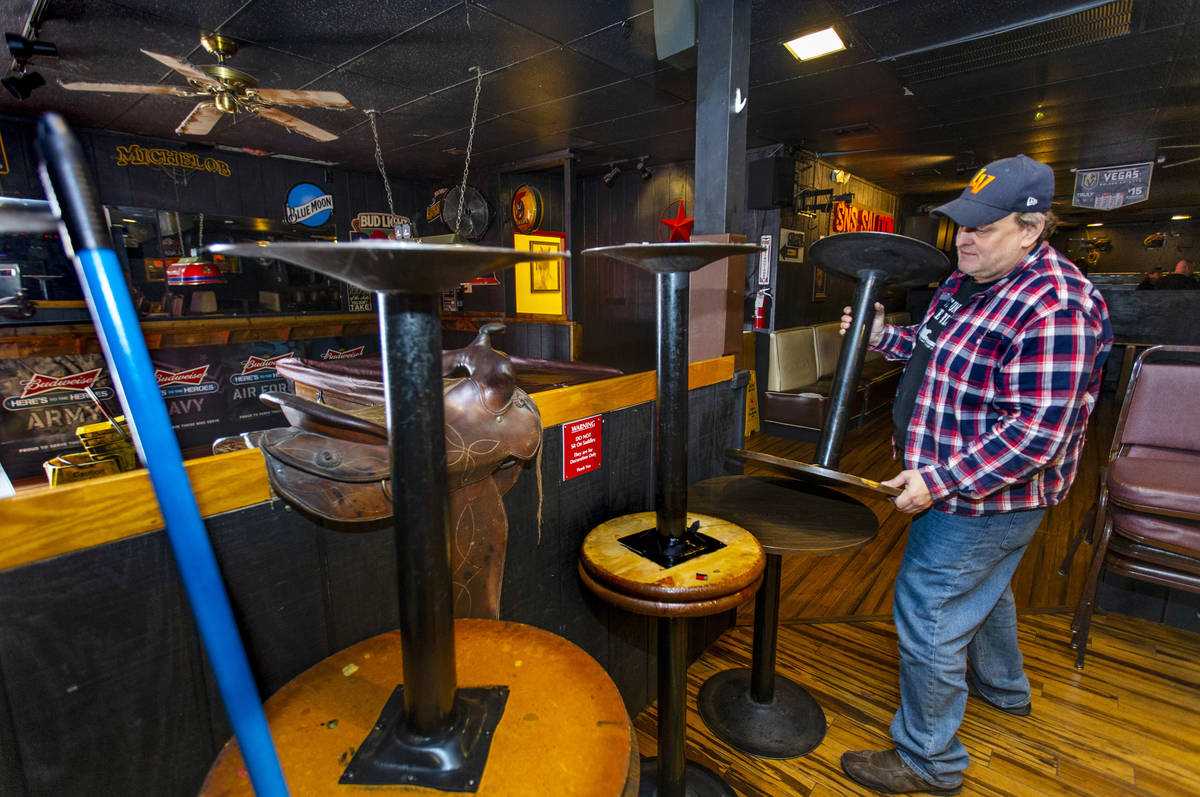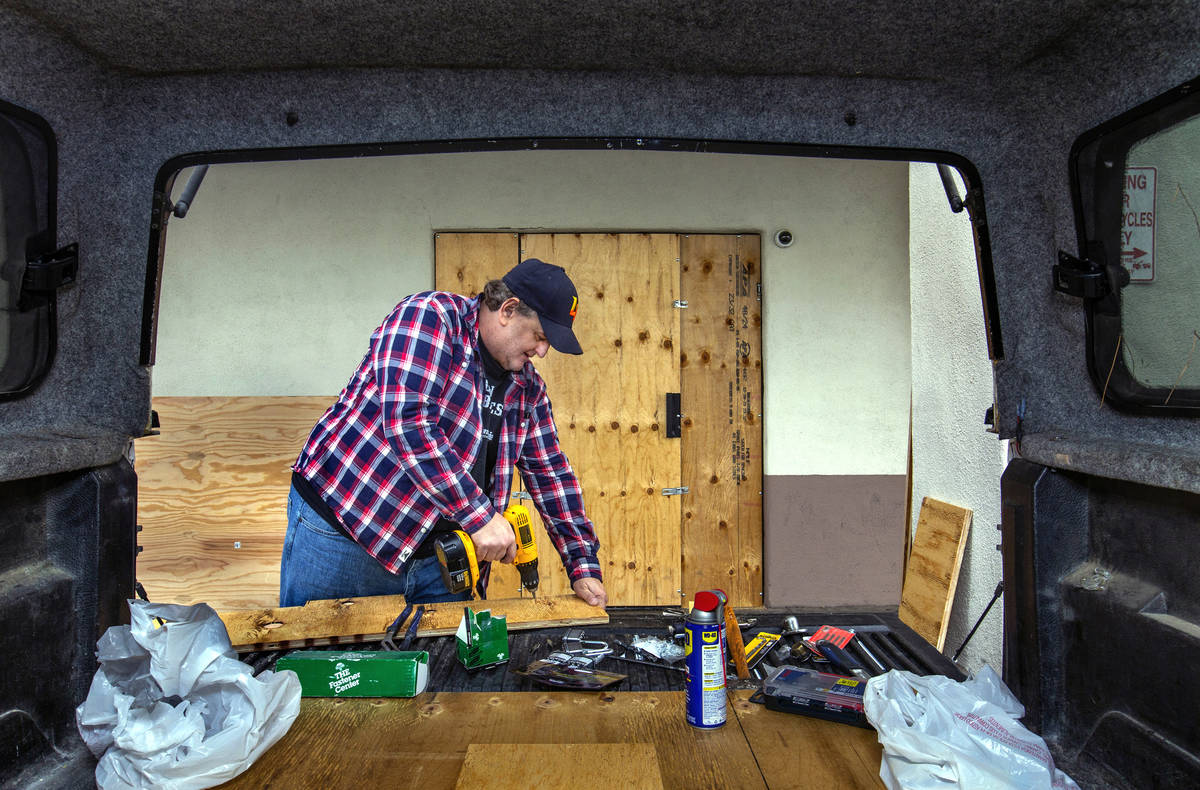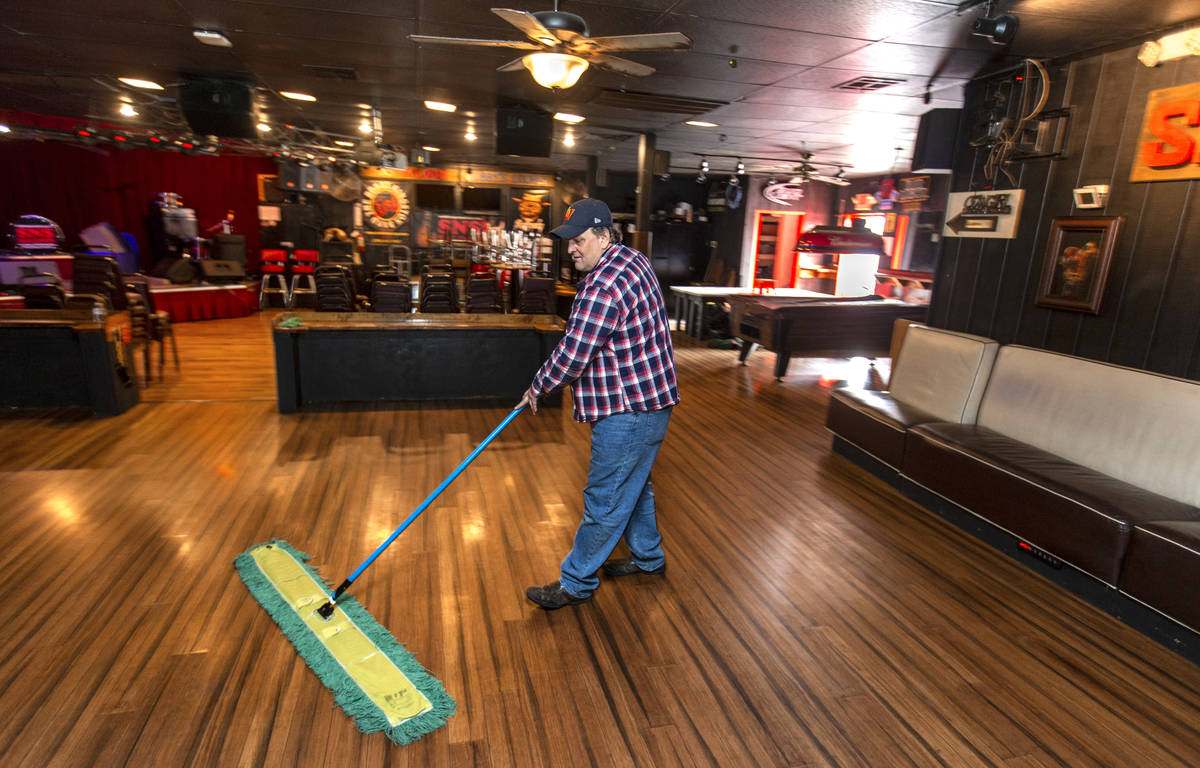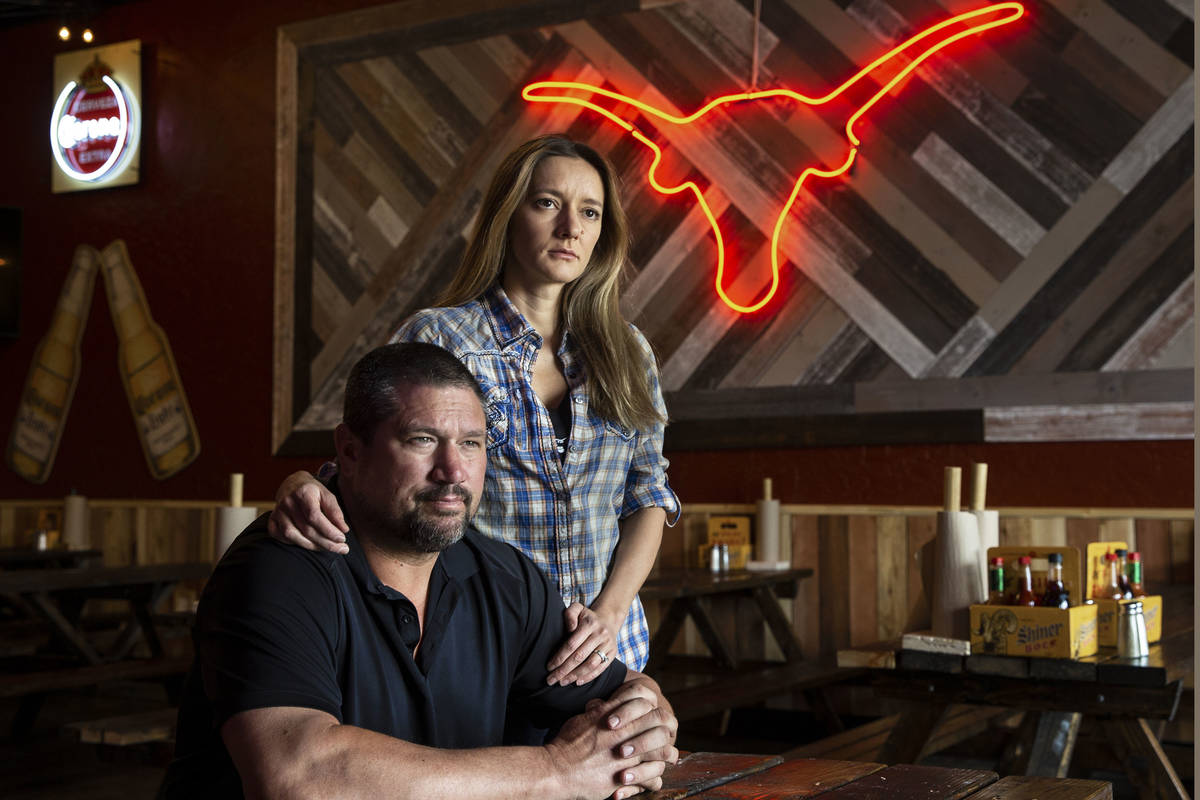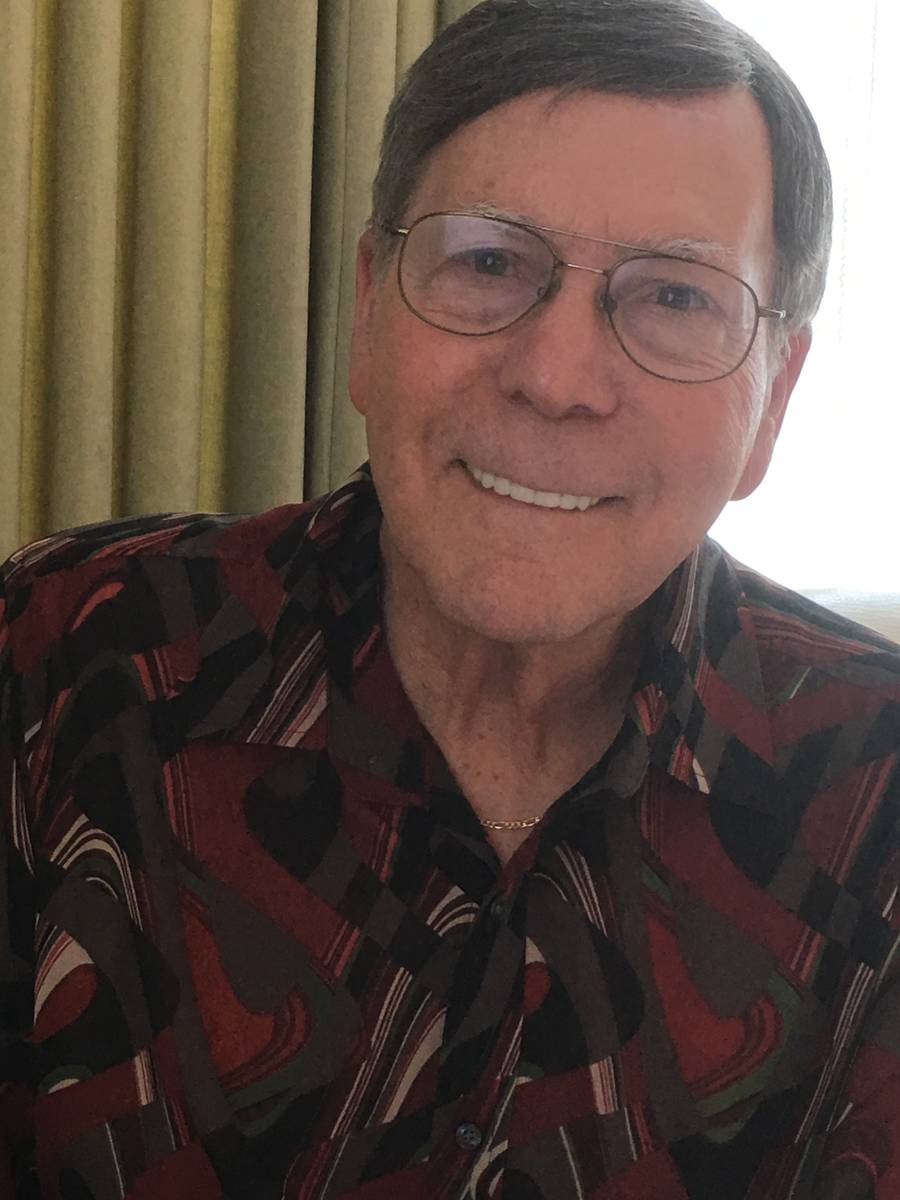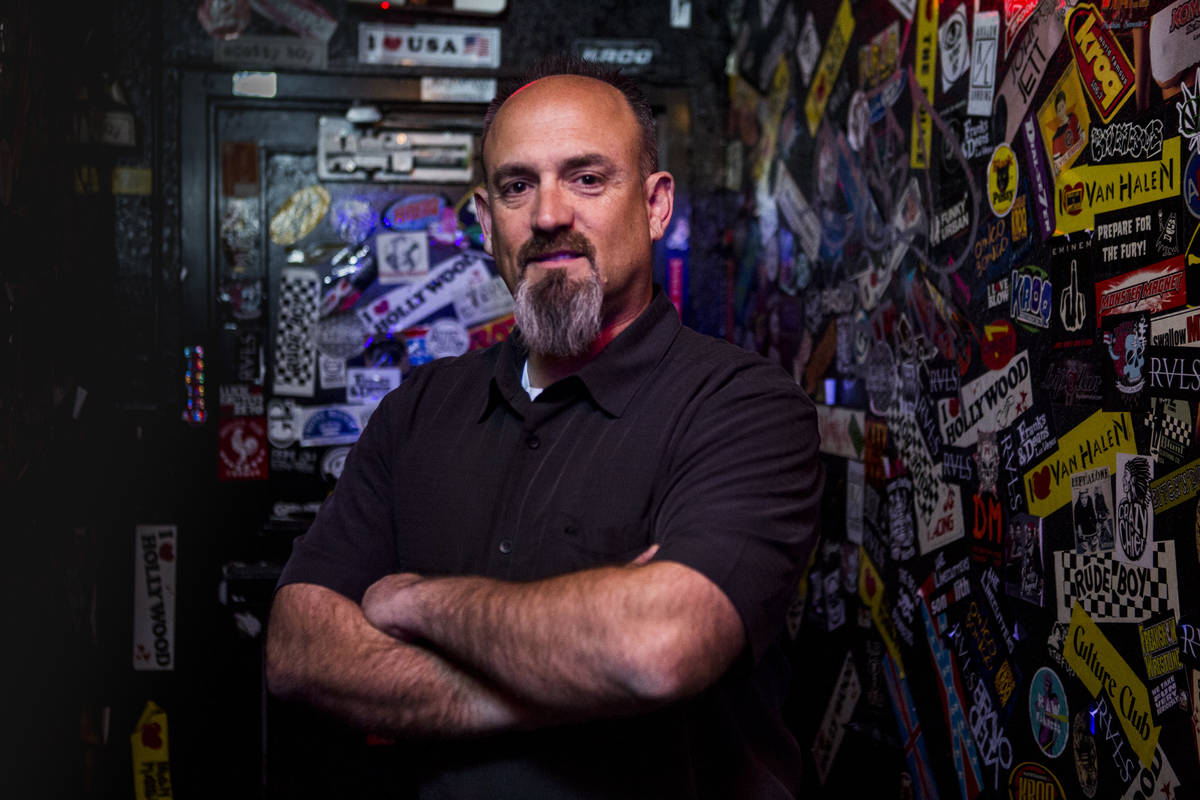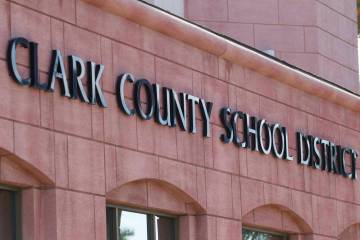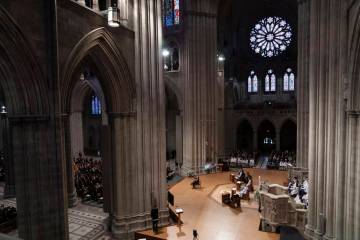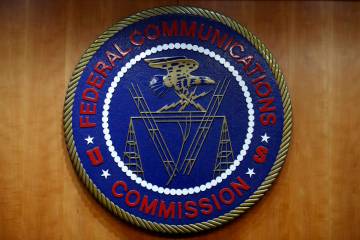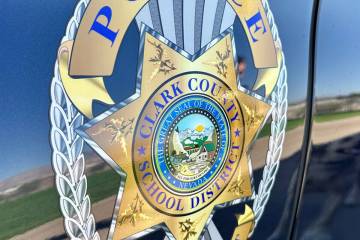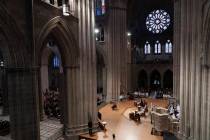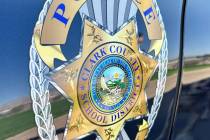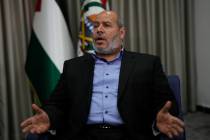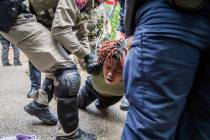Coronavirus impact takes human toll
Las Vegas is a city predicated on good hands and bad hands, but when dealt the latter, it has proven resilient.
Bruce Merrin has experienced that firsthand.
Owner of a publicity firm and celebrity speaking company whose past clients have included Muhammad Ali, Johnny Carson and Ronald Reagan, Merrin moved to Las Vegas with his family in 1956. He’s seen it weather plenty of crises — the 1980 MGM Grand fire that killed 85 people; the economic fallout of 9/11, when the number of people flying into McCarran International Airport dropped more than 28 percent in September 2001; the Great Recession of 2008, when unemployment and foreclosure rates reached record highs above 14 percent and 9 percent, respectively.
But he’s never seen anything quite like this.
“This is by far the one that causes the biggest concern. None of the other ones even come close,” Merrin said. “When 9/11 happened, there was a lot of business that we lost for a considerable time. It hurt very, very badly. The sadness never went away, but the business side started normalling out much more quickly. It was terrible, but we all knew, fast-forwarding, that everybody was going to recover from it. This? How long?”
That’s the big question as we experience the ongoing toll of the coronavirus in Las Vegas, a city remarkably susceptible to economic disruption from the outbreak, maybe more so than any other market in the country.
“Las Vegas remains among the least diversified economies of its size in the United States today,” says Jeremy Aguero, principal analyst with Applied Analysis. “Tourism is a greater share of the Southern Nevada economy than auto manufacturing is in Detroit, or music is in Nashville, or aerospace is in Seattle. The only sort of truly comparative market that we have would be what government is in Washington, D.C.
“The Las Vegas economy is both vulnerable and likely to be substantially, disproportionately impacted.”
With casinos on the Strip closed for the first time since Nov. 23, 1963 — the day after John F. Kennedy was assassinated — the valley is battling the most serious financial threat it has ever faced.
And it’s not just adults who are being affected.
With schools closed for the foreseeable future, touchstone moments in young people’s lives, such as dances and graduation ceremonies, could be suspended.
Field trips, sporting events and other school activities have already been sidelined.
Lily Metz, a 14-year-old eighth grader at Hyde Park Middle School, was supposed to travel to Hawaii at the end of March to take part in a music competition with her fellow students.
Her guitar teacher had been striving to get into the competition for three years.
After they finally made it, the trip was canceled.
“A lot of the groups wrote pieces of music and practiced pieces of music that related to the environment of Hawaii, and now that that’s canceled, it feels like nothing matters anymore,” Metz said. “We practiced that music for months and months, and now it’s just gone.”
On top of the disruptions to daily lives, people have to deal with it all in physical isolation.
With bars, clubs, movie theaters and other gathering spots closed and social distancing measures in effect, there are neither outlets nor opportunities for people to process things communally.
The Golden Knights’ arrival in Las Vegas was crucial in helping the city come together in the wake of Oct. 1, giving the community something to rally around, serving as a bullhorn to amplify civic pride.
There’s none of that now, when people could use it the most.
“In previous crises, much of the social spacing was self-imposed,” said UNLV psychology professor Stephen D. Benning, who directs the university’s Psychophysiology of Emotion and Personality laboratory. “With the exception of, let’s say, 9/11 shutting down outgoing flights for a while, people were still able to congregate, able to take comfort in the presence of others, join together in vigils, in worship, in all kinds of activities.
“What this crisis poses for us is a unique challenge where that physical contact — or at least that physical presence — is not available,” he said. “Some research that’s come out of my lab suggests that people really do feel better when their friends are physically touching them, and we are now deprived of that basic physical contact from anyone but our close families (and) those with whom we live.”
Not only does everyone have to adapt to a new way of life for the foreseeable future, but it had to be done almost instantaneously, with practically no learning curve or time to prepare.
“Part of the issue is that we’ve had to modify our behavior in a very limited time frame — literally in days,” said Dr. Vicki D. Coleman, a Vegas-based behavioral health specialist and author. “We know it’s going to be over, but we don’t have an end date. I think people feel better when there’s a challenge or an issue and we know what the parameters are. But we don’t know what the parameters are.”
Lives changed in an instant
In this gambling mecca, where it’s all about taking chances, Natalia Badzjo and her husband, Brian Buechner, rolled the dice on a dream.
Five years ago, when both were in the nightlife industry, where Badzjo still works as director of customer development at Wynn Las Vegas, the couple opened their first restaurant, Big B’s Texas BBQ, in Henderson.
“We finally took this giant step,” Badzjo recalled. “It was a huge risk, never had a restaurant before. We did this, and it worked. It took us a while to make it successful, but it got there.”
The two did well enough to open a western valley Big B’s last fall.
But while their first restaurant is established enough to survive the shutdown, Badzjo is worried about the prospects for their second location.
“It’s just a feeling of everything we worked so hard for, for so many years, just being wiped away overnight,” she said. “It’s really, really sad.”
Brian Saliba has been wrestling with similar emotions.
The Clark County special events director oversees festivals such as Reggae in the Desert, Jazz in the Park and the Age of Chivalry Renaissance Fair. He also supplies equipment to various fests in town, runs local music publication Smash Magazine and operates a promotion company that books concerts at numerous venues across town.
“You work six months, 12 months in advance to build your calendar and make sure you have enough work to keep your staff employed, and virtually overnight it all went away, all the festivals that we planned, all the club events, all the corporate work,” he said. “The phone kept lighting up like a pinball machine. Somebody would call, ‘This is canceled. This is canceled.’ What do you do?”
That’s a question plenty of workers around town are asking themselves.
For Isaac Irvine, a bartender employed at half-a-dozen locales, including Golden Knights games, concerts at the Park Theater and banquets at the Sands Expo and Convention Center, the shutdown came at the worst time. This month is usually busy for those in the service industry, with the NCAA tournament drawing hordes of sports bettors and St. Patrick’s Day filling bars throughout the city.
“March is supposed to be my best month,” said the father of three, who also plays in punk band the Happy Campers. “Hopefully (the Knights) were going to make the playoffs, which it was looking like we were going to do, so March and April were kind of like saving up for summer.”
Part-time workers, in particular, might be especially vulnerable to having hours cut, if not eliminated altogether.
“I’m really worried about the lower-level employees,” says Greg Danz, owner of the Broadacres Marketplace in North Las Vegas, an important commercial and cultural hub for the city’s Hispanic population. “For me, it’s quite sad. I laid off all of our part-time employees, basically, and today I reduced the pay for all other employees so that we could keep them on the payroll and keep their benefits going.”
For employers such as Saliba and Badzjo, the most difficult part of all this has been trying to maintain their staffs.
“I’ve had to lay off almost everybody. That’s what makes it hard,” Saliba said. “None of these people did anything wrong. We didn’t do anything wrong. The bands didn’t do anything wrong. But yet everybody across the board, unilaterally, is paying for it.”
Badzjo is doing her best to keep things running so that she can keep as many of her 44 workers as possible. She’s even making food deliveries herself.
“I’m trying as hard as I can to stay open at least for pickup and deliveries,” she said. “Obviously, we’re not making any money right now. Every day we’re open, we’re at a loss. But every one of my employees is begging us to stay open because they have no other source of income and they need to put food on their table, too.
“It’s hard,” she continued, “because every day they come with hope in their eyes, like, ‘Can we make it through this?’ ”
Predicting the unpredictable
It lasted 12,914 days, and when the streak ended, it took a measure of Bobby Kingston’s voice with it.
A veteran musician, proprietor of S ’N’ S Saloon and a proud man who doesn’t like to be told what to do with his business, all compressed beneath one cowboy hat, Kingston spoke with a bit of a rasp Tuesday afternoon, hours before his life would change — maybe temporarily, maybe forever.
“I’ve done so much talking after performing Friday and Saturday, talking to the wee hours of the morning to keep the business going,” he said, betraying little weariness despite the circumstances, “trying to reassure customers that we’re doing everything that we can to make sure that they remain healthy.”
His indefatigable efforts would be in vain. Shortly after Kingston spoke Tuesday, Gov. Steve Sisolak recommended that all nonessential businesses be shuttered due to coronavirus concerns, which meant the saloon’s doors would be closed — something they’d never been before, not for one minute since Nov. 1, 1984, when the first beer was poured.
Kingston, and other small-business owners like him, are manning the front lines of the fight for survival.
“A small place like mine easily incurs $10,000 a week worth of overhead,” he explained. “I don’t know anybody else walking around who can just pay $10,000 out of their pocket a week to do nothing. Our livelihood is at risk because of that.”
And there’s no telling when this risk will end and what the ultimate impact on the city will be.
“Yes, we’re running a number of models,” Applied Analysis’ Aguero said. “Yes, we’re looking at a number of alternatives, but we don’t know what this is, and so measuring how long it’s going to last is something of a Sisyphean task.”
When things do get up and running again, few expect an immediate bounce back.
Irvine hopes to be back at work by the summer at the latest, which is his slow season, but he expects the banquet industry to take a hit, with reduced corporate budgets leading to less work.
When it comes to live entertainment, getting shows back on the road could take time due to the logistics of mounting a tour.
“You got to think most tours are done six months in advance, so you’re looking at a six- to 12-month impact on our industry,” Saliba said. “The other problem you’re going to have now is you’re going to have complete overload in the market because everybody’s moving into September.”
Kingston believes that his bar will reopen at some point, though he fears not everyone will survive the shutdown.
“We’re going to get through this somehow, some way. Most nonessential businesses will,” he said. “But for the smaller venues, it’s very challenging from a financial perspective and a business plan perspective to make it work. Things like this just make those challenges increasingly more difficult. The opportunities, when they go away, not all of them are going to come back.”
Until then, he’s got no time to bemoan his plight.
His workplace may be shuttered, but his work is hardly done.
“I’m turning into a security guard, so that nobody loots my place,” he said. “I might be living in Saddle ’N’ Spurs Saloon for who-knows-how-many months,” he chuckled, in a bit of gallows humor. “At least I know I got enough to drink.”
Contact Jason Bracelin at jbracelin@reviewjournal.com or 702-383-0476. Follow @JasonBracelin on Twitter.



